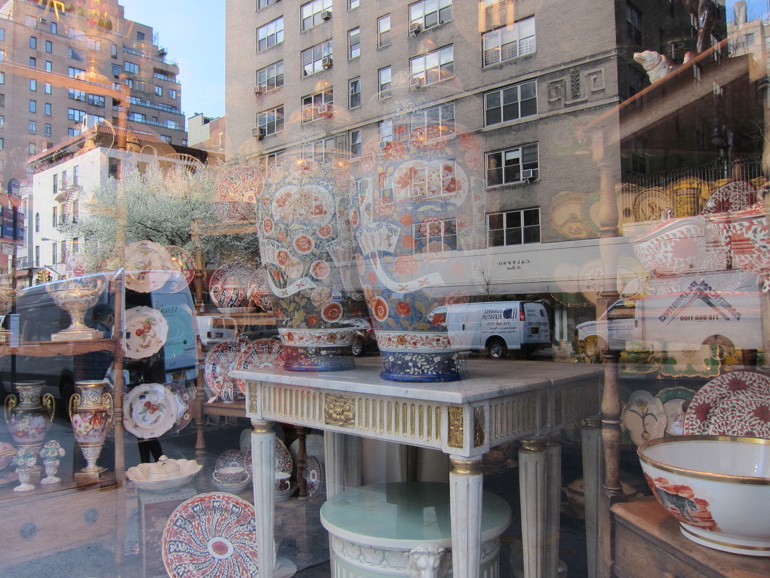Gotham Diary:
Avant la lettre
4 April 2012
Here is Elizabeth Taylor, in a novel published in 1947. (A lady novelist is taking the train to London, to see her publisher — also a woman.)
“A man,” she thought suddenly, “would consider this a business outing. But, then, a man would not have to cook the meals for the day overnight, nor consign his child to a friend, nor leave half-done the ironing, nor forget the grocery order as I now discover I have forgotten it. The artfulness of men,” she thought. “They implant in us, foster in us, instincts which it is to their advantage for us to have, and which, in the end, we feel shame at not possessing.” She opened her eyes and glared with scorn at a middle-aged man reading a newspaper.
“A man like that,” she thought, “a worthless creature, obviously; yet so long has his kind lorded it that I (who, if only I could have been ruthless and single-minded about my work as men are, could have been a good writer) feel slightly guilty at not being back at the kitchen sink.”
The extraordinary dispatch of this passage made me sit right up when I read it last night. I wonder how many male readers did so in 1947. Perhaps there was a bit of squirming, but shock would have been unlikely. Any men caught reading Elizabeth Taylor in those days would have been, presumably, at least mildly sympathetic to the charge of “lording it”; and meanwhile he would take full advantage of the fun that Taylor has at the expense of her character, who could have been a good writer. For it is also the case that this woman is a terrible home-maker. Her husband, indeed, is — but never mind about that.
No, the cause of feminism was not much advanced by this kind of writing. Outrage was required. Not the kind of outrage that, for the moment, convulses our glaring novelist on the train, but the kind of outrage that won’t stand for books with such titles as The Female Eunuch. I blush to think how brazenly I carried Germaine Greer’s book around with me, back in my early radio days, oblivious of the offense that it gave, simply as a mere unopened object. I blush, but not so deeply, at the recollection of being repulsed by the unshaven legs of the more advanced women. Outrage! That’s what it takes to get people thinking.
***
After a few hours of longreads, and then editorially deciding what to do with them, I felt that what I needed after all that hard work was a nice walk in the park. This was unusual: my typical response to a bout of hard work is prostration, not restlessness. Chalk it up to spring. The day wasn’t as warm and balmy as advertised; I almost came down with pneumonia at the Shake Shack, nibbling my frozen fries with childblained fingers. Later in the afternoon, when I took my walk, it was more pleasant, but still pretty blustery. I walked down to the park thinking what a waste of time it was, but enjoying myself helplessly anyway. I took a lot of pictures, mostly of utterly familiar views. I’ve been walking to Carl Schurz Park for over thirty years, and there was absolutely nothing new and different about the place yesterday — except, of course, for the sheer yesterday-ness, which was imperishably distinctive, even if it’s entirely beyond my powers to say why. Chalk &c.
On the way home, I stopped in at Fairway to buy one or two things for a shrimp risotto, which I made for dinner a few hours later. It had been a while since my last risotto, and I detected an edge of sawdust in the old rice. (Kathleen claimed not to notice it.) How nice it would be to ask at a counter, which I can remember doing as a very small child, to ask for small quantities of things. I would buy a half cup of arborio as needed. How grand it would be to live without bottles of herbs and spices, but instead to buy tiny packets of them whenever needed.

